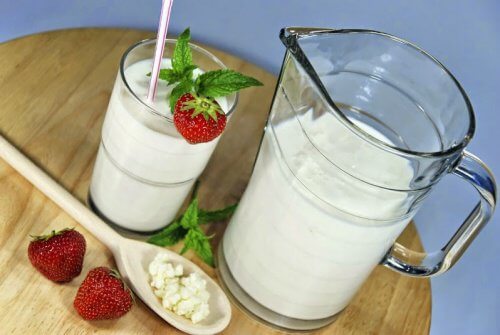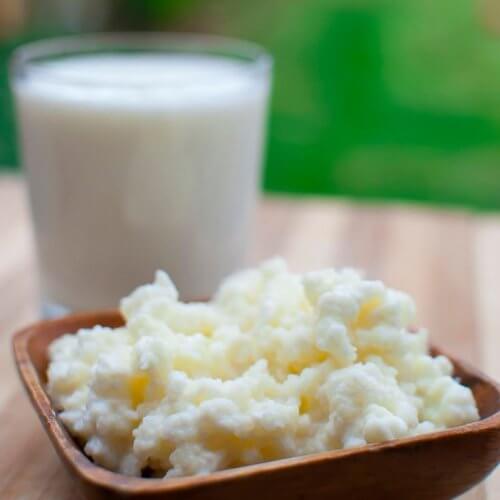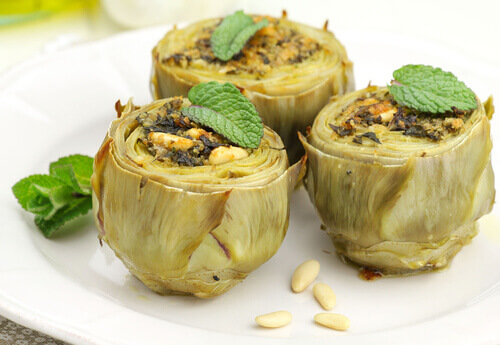Top 15 Healthiest Probiotics and Prebiotics


Written and verified by psychologist Valeria Sabater
Probiotics and prebiotics are not the same thing. They are sometimes confused, and the products don’t often state the individual benefits. However, both probiotics and prebiotics are vital for day to day health.
They help improve digestive functions and also strengthen the immune system to fight infections along with several other types of diseases.
In this article we’ll be explaining the difference, and also telling you the best products around.
Probiotics and prebiotics are not the same
I’m sure that you’ve seen plenty of commercials on TV for different types of yogurts that provide “good bacteria.” We are talking here about probiotics, like the classic plain yogurt, kefir, sauerkraut, or miso soup. These all help strengthen bacterial flora.
So what are prebiotics then? Don’t they provide good bacteria as well? Are they digestive microorganisms? Well, almost. Here’s all you need to know about the differences between probiotics and prebiotics.
1. Probiotics
- The World Health Organization (WHO) defines probiotics as live microorganisms that produce a beneficial effect on health when administered correctly.
- They are intestinal bacteria that help stimulate digestive juices and natural enzymes, necessary for correct digestion. It’s always a good idea to consume organic probiotics, or those found in their natural state.
- It might be a little scary to think of your digestive system as being “colonized” by all sorts of bacteria. However, these are known as intestinal microbiota. Not only are they vital to health, but they are also very sensitive to any type of foods you eat. In addition to that, they’re also sensitive to stress, some diseases, and a lot of different medicines.
- These microorganisms also play an immune system role in the intestinal mucosa. They prevent viruses, or harmful microorganisms, from growing and developing.
- Consuming probiotics, like fermented milk products, helps protect against lots of diseases. Natural milk can oftentimes be more toxic than beneficial for the intestines. It can even cause inflammation if the individual suffers from an intolerance.

2. Prebiotics
- Prebiotics are a type of carbohydrate that acts as an underlying layer to probiotics. They are components that the intestines cannot digest, but they act as a structural base that provides strength to these living organisms that protect us against harmful agents.
- They stimulate the immune system, promoting the development of beneficial bacteria in the intestines, while also preventing the growth of bacteria.
- Prebiotics help absorb some minerals, like calcium and magnesium.
- They help reduce gas and also promote intestinal flow.
- They fight constipation and Inflammatory Bowel Disease.
Read more: Here’s What You Should Eat to Help Treat Irritable Bowel Syndrome
The best probiotics to consume daily

1. Kefir
- Kefir is fermented cow or goat’s milk. It tastes acidic and has a good texture, thanks to the fermentation process which reduces as much of the original sugars in the milk as possible.
- Kefir is available as a liquid or in granules, and is great at breakfast time.
- It is one of the richest foods in living microorganisms capable of strengthening and caring for intestinal health.
- If you consume kefir regularly, it will eliminate pathogenic bacteria which live in the intestines, oftentimes leading to gastroenteritis.
2. Sauerkraut
- One could say that after kefir, sauerkraut is the second most beneficial food for intestinal bacteria.
- Sauerkraut is fermented cabbage, rich in lactobacillus or bifidubacterium.
- Sauerkraut improves intestinal bacteria, reestablishes pH levels in the small intestine, protects digestion, and also allows us to better absorb nutrients.
- Fermented cabbage is rich in vitamins A, B1, B2, C, as well as minerals like iron, calcium, phosphorus, and magnesium.
Other foods with probiotics
- Greek yogurt
- Miso soup
- Kombucha
- Olives
- Dark chocolate
The best daily prebiotic foods

Artichokes
Not only are artichokes extremely healthy for the liver, but they are also one of the best prebiotic foods around. They contain between 3% and 20% inulin, one of the most common prebiotics.
See more: 6 Benefits of Artichokes For Your Health
Chicory root
The second richest food in prebiotic components like inulin is chicory root. You can find it in health food stores ready to be included in meals, or, alternatively, to be prepared as a natural infusion.
Garlic
Garlic contains roughly 15% inulin. So how about drinking a glass of water every morning with fresh garlic juice? Your health will thank you for it!
Onion
Onions contain between 5% and 8% inulin, and you can eat them raw or cooked.
Leeks
Leeks provide between 3% and 10% inulin, and are therefore perfect for improving intestinal microflora health.
Wheat germ
Wheat germ is another prebiotic food that you can include in your diet. It provides 5% of these types of substances.
Wheat flour
If you consume this cooked, and always in moderation (so as to prevent weight gain), it will provide you with 5% prebiotics.
Bananas
If you like bananas, eat them whenever you like. They only provide .5% of inulin, but combined with the aforementioned foods, it will help stimulate intestinal bacteria to make you healthy. It’s worth it!
All cited sources were thoroughly reviewed by our team to ensure their quality, reliability, currency, and validity. The bibliography of this article was considered reliable and of academic or scientific accuracy.
- Farnworth, E. R. (2005). Kefir ? a complex probiotic. Food Science <html_ent Glyph=”@amp;” Ascii=”&”/> Technology Bulletin: Functional Foods. https://doi.org/10.1616/1476-2137.13938
This text is provided for informational purposes only and does not replace consultation with a professional. If in doubt, consult your specialist.








